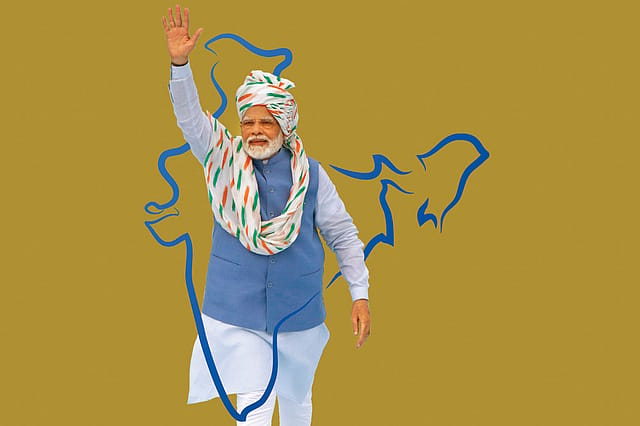The New Idea of India

THE IDEA OF INDIA that holds sway even today was the outcome of reinterpreting the Indian past in light of the colonial encounter. Thus, we see a tendency to provide answers to questions posed by British imperialism about the identity of India. This intellectually dominant idea of India bears the wounds of colonialism and its various complexities can be traced to Gandhian- Nehruvian discourses. This idea has circulated in academia and persists in our own time.
A great movement in any country needs a redefinition of national identity according to the changing times. This has been observed in the cases of nations like Japan, China, the US and Britain, as well as in South Asia. India, too, reimagined its foundational ideas during the freedom struggle and independent India reasserted values and concepts like diversity, secularism, adaptation and intermingling. The idea of India has also been shaped by the adoption of Western modernity. It has its advantages and shortcomings but has worked as an ideological and inspirational resource for the Indian people for a long time.
After the economic liberalisation of the 1990s, qualitative changes were seen in politics and society too. Any transformative shift in society, polity and culture also affects the structure of ideas and the foundation of identities. Thus, a churning may still be seen in the idea of India. During Atal Bihari Vajpayee's tenure as prime minister, a civilisational meaning of the idea of India reasserted itself. The ancient Indian past rose as the core of a new discourse, reflecting values and ideals as well as developmental ideas to reorient the present.
Openomics 2026: Continuity and Conviction
06 Feb 2026 - Vol 04 | Issue 57
The performance state at its peak
Narendra Modi articulated a new developmental idea of India when he became prime minister, which was a long-term vision of India. Such a map of India's future was missing from the dominant narrative. The idea of India has now been revised with Modi's addition of progress and development to it. This new identity of India is free of colonial influence and reflects a confident and self-reliant country that is asserting itself to become the third-largest economy and an effective global leader.
Such a big developmental mission needs inspiration and support from the foundational idea of the nation. China, for example, has periodically revised its idea of itself showing the ideological shifts within. In doing so, China has constantly re-imagined its native resources and consented to the Western capitalist model of development. This required a moral base which China created by mixing the philosophical and spiritual resources of Buddhism, Confucianism and Taoism.
While the idea of India had emerged under the influence of colonial modernity, the evolution of Indian modernity is unfinished business. It is a slow but constant process. Mahatma Gandhi had attempted to create an original sense of modernity for India but that project could not progress after his death. There had been no planned Indianisation of modernity since or any effort at coming up with non- Western ideas for a development-led transformation. When Modi envisioned Viksit Bharat, he also outlined its cultural context. His ministers, like him, usually discuss development against that backdrop. This is the shift in the idea of India which had hitherto avoided cultural or spiritual references in imagining development. It's not surprising that Modi has also tried to engage religious and cultural institutions like temples and sects in his mission of Viksit Bharat. For instance, on a recent visit to the Swaminarayan temple in Gujarat, he requested the sect to engage with Viksit Bharat. India, as nation and society, is therefore likely to evolve in a new context, showing that the idea of India is not a fixed stereotype. Modi's Viksit Bharat may require a revised narrative which is yet to be theorised in the sphere of knowledge.
